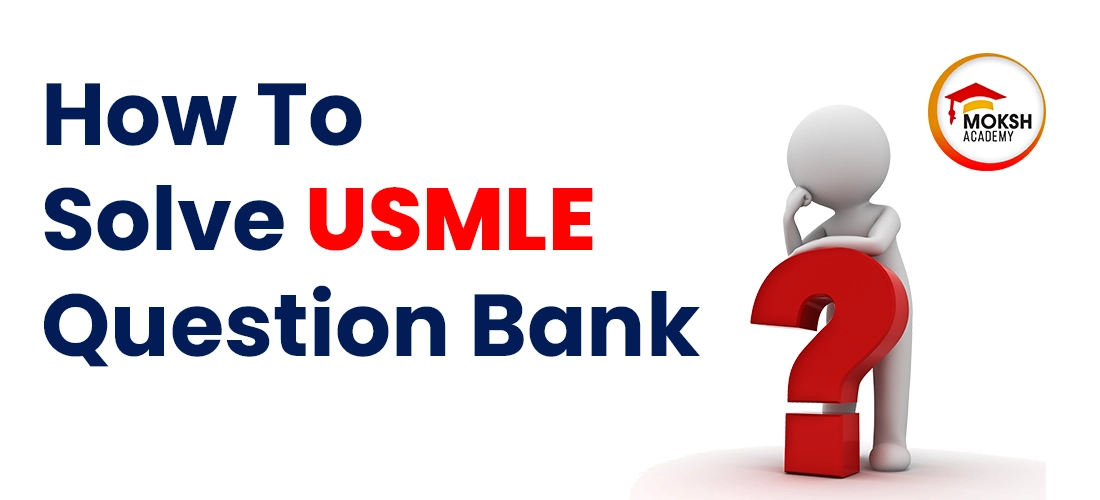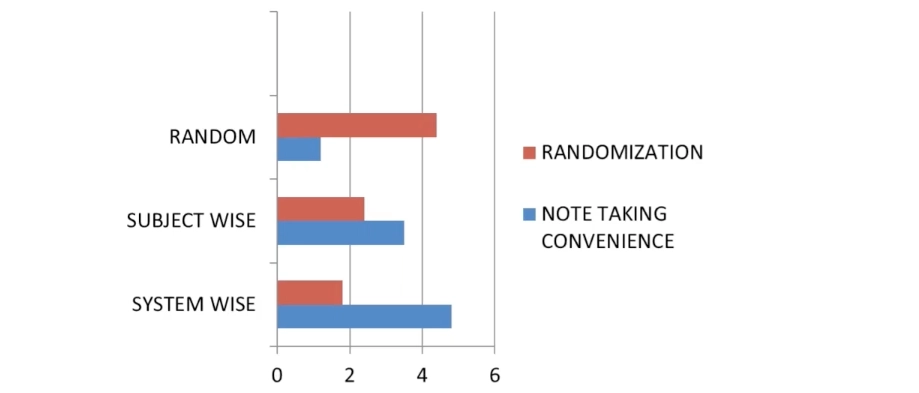
Introduction:
Preparing for the USMLE exams is no small feat, and a vital tool in your arsenal is a USMLE Question Bank. This comprehensive guide will walk you through making the most of this resource, providing valuable insights and strategies to ace your medical licensing exams.
When to begin solving USMLE Question Bank?
The USMLE Question Bank offers many practice questions to hone your skills. The ideal time to start working with a USMLE Question Bank is as early as possible! You can begin using it after you've completed your first comprehensive reading of the entire syllabus. Additionally, it's highly beneficial to continue practising with the USMLE Question Bank while going through your second study round. Access to a comprehensive USMLE Step 1 question bank is crucial for success. A dedicated question bank is invaluable when preparing for the USMLE Step 2 CK. Step 1 Qbank is a must-have resource to get familiar with exam-style questions. The USMLE Step 2 Qbank is essential for students progressing to the next level. This early engagement with practice questions helps minimize guesswork and boosts your confidence by providing the correct answers.
Reasons for starting your practice with a USMLE Question Bank
A USMLE Qbank is a valuable asset for anyone preparing for the exams. Students often search for a USMLE question bank free version, but comprehensive resources are usually paid. USMLE Qbank is a staple for those preparing for the exams. When considering a Qbank USMLE, choosing one that aligns with your study needs is essential.
Selecting the best USMLE question bank is crucial for your exam preparation.
A dedicated Qbank for USMLE can significantly enhance your readiness for the exams.
Indeed, here are the reasons for starting your practice with a USMLE Question Bank as soon as possible:
- Eliminate Guesswork: Early practice minimizes or eliminates guesswork when facing exam questions.
- Boost Confidence: Answering questions correctly in your practice increases your confidence, which is essential for the actual exam.
Method of solving USMLE Qbank
When starting to solve USMLE Qbank, students can opt for various methods. The essential
methods are as follows –

- Subject-Wise Approach: When you approach your question bank subject-wise, you deal with a more randomized selection of questions from different topics. This approach can make it challenging to take notes because you need to switch between various subjects frequently. It needs to provide a systematic flow of related concepts, making connecting and remembering information across different subjects more challenging.
- System-Wise Approach: Opting for a system-wise approach is more structured. It allows you to focus on a specific organ system or area of the body at a time. This method is convenient for note-taking because questions are related to each other and often refer to the same set of concepts. However, there may be a bias in answers. For instance, if you're studying the cardiovascular system, many questions relate to heart-related issues, potentially creating a bias in your practice.
- Random Approach: Choosing the random approach leads to maximum randomization of questions. They are not organized by subject or system, so it's like a mixed bag. While this approach exposes you to a broad range of topics, note-taking can be less convenient because there's no structured flow. You might jump from cardiology to immunology to pharmacology in quick succession. This approach offers great diversity in question types but needs to be more organized for systematic note-taking.
Process of Solving USMLE Questions:
- Read a Topic: Start by reading a specific topic from your study material. This step provides the foundational knowledge needed to answer questions about that topic.
- Solve Questions: After studying a topic, practice by solving questions specifically related to that topic. This targeted approach allows you to apply what you've learned and assess your understanding.
- Review Thoroughly: Review your answers meticulously once you've completed a set of questions. Understand why each answer choice is correct or incorrect. Pay attention to the explanations provided.
- Add Notes: While reviewing, make notes of important concepts, facts, or explanations that stand out. These notes serve as valuable references for future revision.
- Reread Missed Concepts: If there are any concepts you missed or found challenging during the question-solving process, go back to your study material and reread those sections. Ensure you grasp these concepts thoroughly.
- Topic Review: At the end of your study session, revisit the entire topic, incorporating the notes you've taken and the knowledge you've gained from question-solving. This comprehensive review reinforces your understanding.
Daily Habit:
Make it a daily habit to solve a few questions consistently. Regardless of your schedule or other commitments, dedicate time to answering USMLE practice questions every single day. This routine helps you maintain momentum and steadily improve your knowledge and test-taking skills.
Purpose of First Pass in USMLE Preparation –
The first pass in your USMLE preparation is like building a solid foundation for your study plan. During this phase, you have several important goals:
- Application of Knowledge: You practice applying what you've learned to solve real medical problems. This helps you understand and use your knowledge.
- Recall Practice: You strengthen your memory by recalling lots of medical facts. This is important for remembering information during the exam.
- Understanding Patterns: As you go through your first pass, you start noticing common question patterns, which helps you prepare better.
- Learning New Concepts: It's not just about reviewing what you already know; you'll also learn new medical concepts during this phase.
- Getting Comfortable: You become comfortable with the exam's format, the computer-based system, and time limits. This helps reduce stress during the actual test.
- Developing Your Technique: You figure out your study and test-taking techniques. This way, you'll be well-prepared in a way that works best for you.
In simple terms, the first pass is like laying the groundwork for your USMLE journey. It's not just about reviewing what you know but also learning new things, improving your memory, and getting comfortable with the exam format. This phase is essential for your success in the USMLE exams.
How to Approach USMLE Qbank Questions:
Here are the essential points that need to be kept in mind when approaching USMLE Qbank questions -
- Treat every question as if it's an actual exam question.
- Start by reading the last line of the question first to understand what it's asking.
- Highlight the necessary information in the question.
- Select an answer option.
- Eliminate all the other answer choices.
Analyzing Mistakes:
When reviewing your mistakes, consider what type of mistake you made:
- Conceptual: Did you need to understand the topic or concept being tested?
- Memory-Based: Was it a case of forgetting something you knew?
- Silly Mistake: Did you make a careless error?
- New Information: Did you encounter something you hadn't studied before?
By identifying the type of mistake, you can work on specific areas for improvement in your USMLE preparation.
USMLE Flashcards:
USMLE flashcards can be a valuable tool for memorizing essential concepts. Medical students commonly use Step 1 flashcards for quick revision. USMLE Step 1 flashcards can aid in retaining crucial information.
- Create flashcards with tables and images, including histological and gross images.
- Focus on concepts you've previously answered incorrectly.
- Include summary points on your flashcards for spaced repetition during your study.
- Use these flashcards for your final revision to consolidate your knowledge.
- Keep flashcards for reference to look up information during your USMLE preparation.
Using USMLE flashcards for Step 1 is a popular study strategy among medical students. So keep it up to date.
Marked and incorrect USMLE Questions:
- It's crucial to mark questions as you go through your study.
- Consider keeping questions that you'd like to attempt again.
- Mark questions that relate to volatile or challenging concepts.
- Also, mark questions involving new ideas or those you got right by guessing.
- After completing one full pass of questions, review only the ones you marked as incorrect or challenging. This selective review helps you improve in areas where you initially struggled.
Valuable tips and tricks:
- Number of Rounds: You can complete two questions or one round and revisit the ones you marked and got wrong. This flexibility allows you to tailor your study approach.
- UWorld Usage: Consider MOKSH Qbank or UWorld Qbank both as a learning tool and to test your knowledge. Use it to build your understanding of concepts and to gauge your progress through self-assessment.
- Timed or Untimed: Start with untimed practice, especially if you're in the initial phases. As you gain confidence, transition to the timed method towards the end of your first pass or during your second pass.
- Chunked Practice: If doing 40 questions in one go is challenging, break it into smaller sets. For example, tackle ten questions, review them, and then move on to the next 10. This helps maintain your focus and understanding.
- Don't Obsess Over Percentages: Don't overly concern yourself with the percentage of questions you answer correctly or your percentile rank. Instead, prioritize learning the concepts.
- Concept Over Memorization: Focus on grasping the underlying concepts rather than memorizing specific questions. This approach is more beneficial for your overall understanding.
- Challenge Difficult Questions: Resist the urge to skip challenging questions. Confront them head-on, as they offer valuable opportunities for learning and growth in your USMLE preparation.
Conclusion
In the demanding journey of preparing for the USMLE exams, the role of a USMLE Question Bank cannot be overstated. Starting early with this valuable resource and implementing the right strategies is the key to success. We've explored different methods of tackling questions, the importance of the first pass, and how to approach questions and analyze your mistakes. Additionally, flashcards, marked and incorrect questions, and valuable tips and tricks have been outlined to help you maximize your Question Bank experience. When considering a Qbank USMLE, choosing one that aligns with your study needs is essential. Selecting the best USMLE question bank is crucial for your exam preparation. A dedicated Qbank for USMLE can significantly enhance your readiness for the exams.
At this point, the invaluable services offered by Moksh Academy are worth mentioning. As a dedicated partner in your USMLE preparation, Moksh Academy provides comprehensive resources, guidance, and support to ensure your success. Their expertly designed study materials and personalized assistance can significantly enhance your preparation. Whether starting your first pass or revisiting marked and incorrect questions, Moksh Academy's services can make a substantial difference in your journey toward achieving the highest scores in the USMLE exams.
Best of luck in your USMLE preparation, and remember that success is within reach with the proper guidance and unwavering determination!




